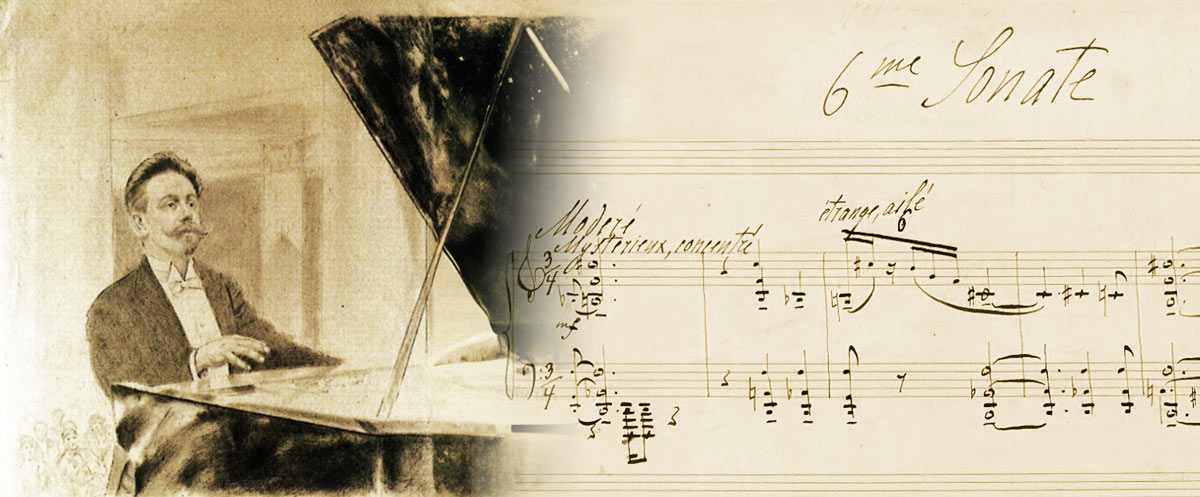Poems of Ecstasy – Scriabin’s Complete Piano Works Now on Piano Street
The great early 20th-century composer Alexander Scriabin left us 74 published opuses, and several unpublished manuscripts, mainly from his teenage years – when he would never go to bed without first putting a copy of Chopin’s music under his pillow. All of these scores (220 pieces in total) can now be found on Piano Street’s Scriabin page.
Although Scriabin’s first and last works are separated by less than 30 years, it seems as if the music has been written on different planets. In his youth, Scriabin worshipped Chopin – consequently, his work catalog is full of Mazurkas, Preludes, Etudes, and Impromptus. However, Scriabin’s early efforts weren’t simply imitation. Rather than a copyist, perhaps he can more fairly be described as an “inheritor” of Chopin.
The mature period
In the first years of the 20th century, Scriabin’s style embarks on more radical advancements. The mature creative period opens with his Fourth Sonata Op.30, composed in 1903 along with thirteen other opuses, such as his Poèmes, the 8 Etudes Op. 42, and the Third Symphony, The Divine Poem. Everything that follows after this remarkably productive year demonstrates the emergence of an increasingly more complex musical language.
Beginning with the fifth (1907), Scriabin´s Piano Sonatas have no key signature and consist of only a single movement. With the ninth, so-called Black Mass Sonata, the journey to Scriabin’s particular brand of atonality is complete. His final works herald a new age of music in the twentieth century. A unique world of radiant colors and ecstatic mysticism, born out of his exceedingly complex harmonic system, his theosophical worldview, and his inimitable qualities as a pianist.
Scriabin the Pianist
Scriabin’s contemporaries have described his intimate, delicate, and alluring sound: “Sounds within pianissimo revealed themselves to him in their fullest charm, and his virtuoso pedaling clothed these sounds with some strange resonance which no pianist after him could recreate. In the strong moments he was wonderfully nervy – this nervosity had the effect of an electric current.’ (Leonid Sabaneev) Like his spiritual ancestor Chopin, Scriabin was to a great extent a poet of the intimate circle; when he played his smaller works in various home concerts, “it was as if these works indeed were written specifically for such a setting. They opened up under his fingers like fragrant, opulent flowers: and here, in this setting, his miniature preludes never seemed so short as on the concert stage – they broadened somehow, and filled the time. He made long pauses between individual works so that the silence seemed part of the composition.”
The Piano Street team wishes you many happy hours exploring Scriabin’s fragrant and opulent soundworld! With our AST feature, you can also listen to handpicked recordings for each of his 220 pieces while studying the sheet music.

Comments